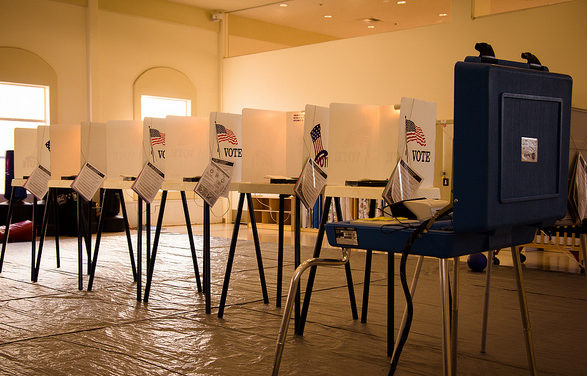
The Trump Administration’s information request violates a longstanding federal law.
Recently, the newly created Presidential Advisory Commission on Election Integrity sent a letter to all fifty states asking them to submit extensive information about registered voters. The letter has created an uproar among state officials, and many have announced their intention to refuse the request. President Donald Trump has tweeted his disapproval of these state refusals.
Overlooked in the controversy has been the rather obvious conclusion that, because the Commission on Election Integrity appears to have ignored the requirements of the Paperwork Reduction Act (PRA), its request is simply illegal.
The PRA was passed in 1980 with bipartisan support and signed by President Jimmy Carter. A central purpose of the law was to ensure that, before collecting information from the American public, federal agencies solicited public comment and received approval from the Office of Information and Regulatory Affairs (OIRA). In the 37 years since the passage of the PRA, tens of thousands of government information collections have gone through this process.
Yet the Commission’s request letter did not include any indication that it had been submitted for review through the PRA process. The PRA requires not only that OIRA review requests for information, but also that agencies include on any such request an approval number and an estimate of the time it will take for a respondent to provide the information requested.
The PRA and its implementing regulations do include exceptions to its public comment and OIRA approval requirements, but the request for voter data does not seem to meet any of those exceptions. To wit, the Commission is a federal agency under the definition in the PRA’s implementing regulations. It has clearly requested information, specifically:
the full first and last names of all registrants, middle names or initials if available, addresses, dates of birth, political party (if recorded in your state), last four digits of social security number if available, voter history (elections voted in) from 2006 onward, active/inactive status, cancelled status, information regarding any felony convictions, information regarding voter registration in another state, information regarding military status, and overseas citizen information.
And the same information was presumably requested of ten or more entities—fifty in this case.
Under the PRA, the Commission must calculate the burden on state officials of complying with the information request. The Commission must also explain how it will protect and eventually dispose of the information. Perhaps most importantly, given the uproar the letter has generated, the Commission must also explain why the government needs the information and how it will be used.
Agencies across the government have regularly bemoaned the PRA and how it makes their jobs harder. Indeed, there are cases where agencies must wait months to collect information that everyone agrees is useful and on which no member of the public will ever submit comments. But in cases where the government is imposing a significant burden on the public, or collecting sensitive data, the PRA is an important safeguard against government overreach.
The Commission’s letter calls for exactly the type of information collection with which the PRA was enacted to deal. In such a sensitive policy area involving the sanctity of voting privacy and the legitimacy of elections, public comment is particularly important. Further, OIRA review focuses specifically on how the government will use the information and whether that use justifies the burden on the American public. These questions go to the heart of the issues surrounding the Commission’s request.
For these reasons, the Commission should immediately withdraw its request for voter data. If it decides it still wants to proceed to ask states for these data, it should start over and follow the requirements of the PRA. Only then will a transparent and thoughtful review of this highly controversial collection of information take place, as contemplated under federal law.
The photograph of a Los Angeles County voting center has been altered for size and is used with permission under a Creative Commons license owned by Stephen Velasco.




